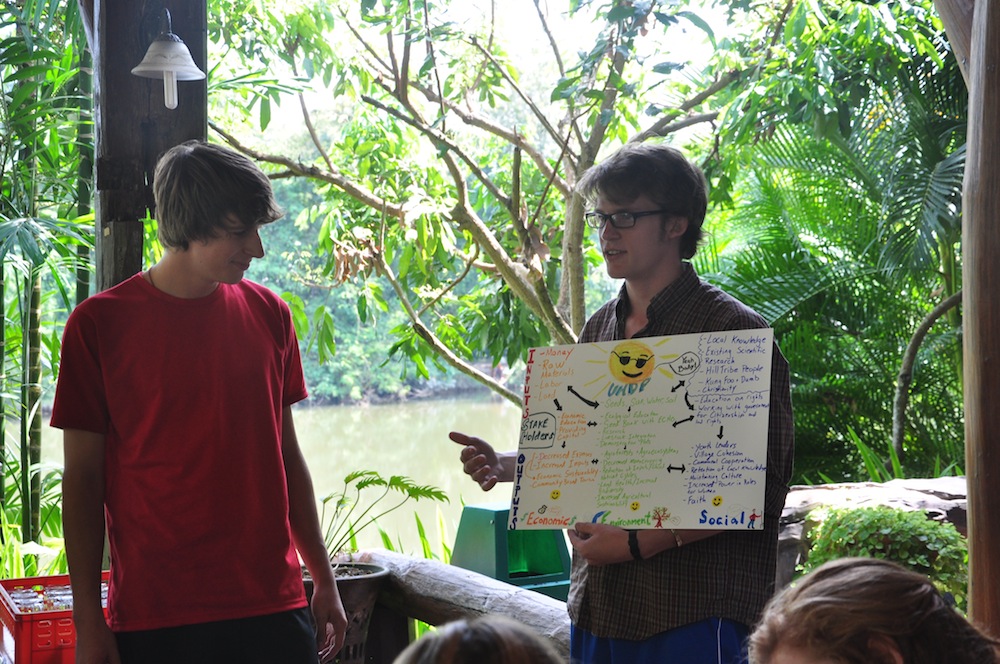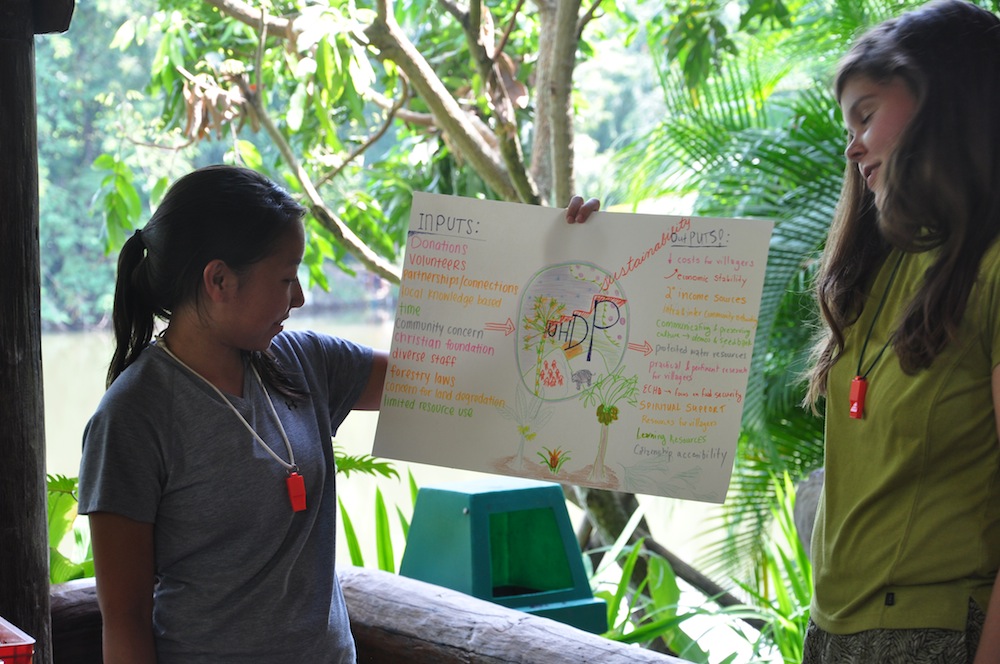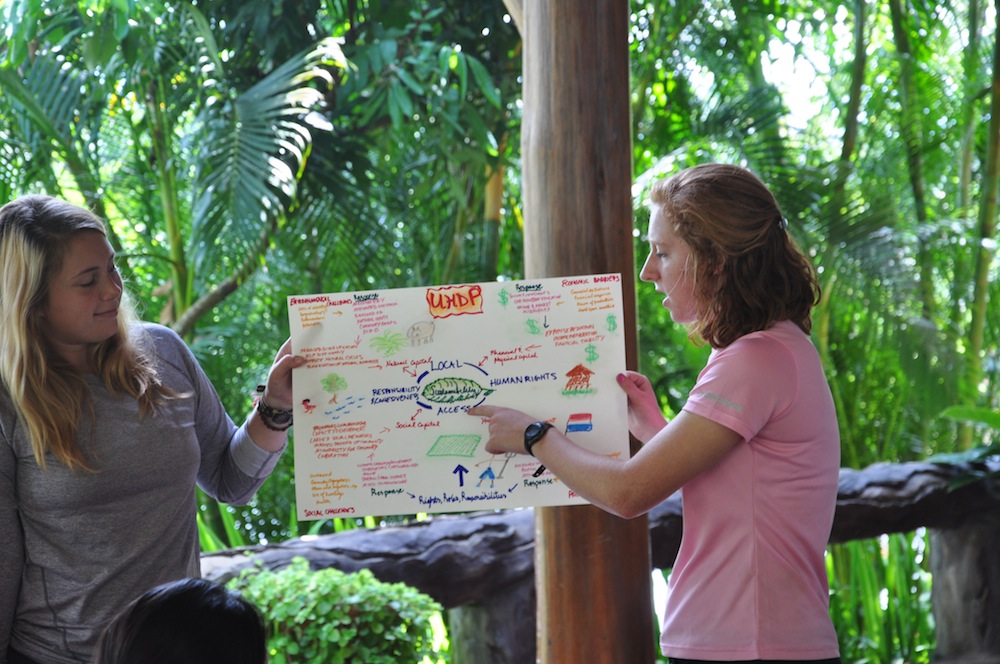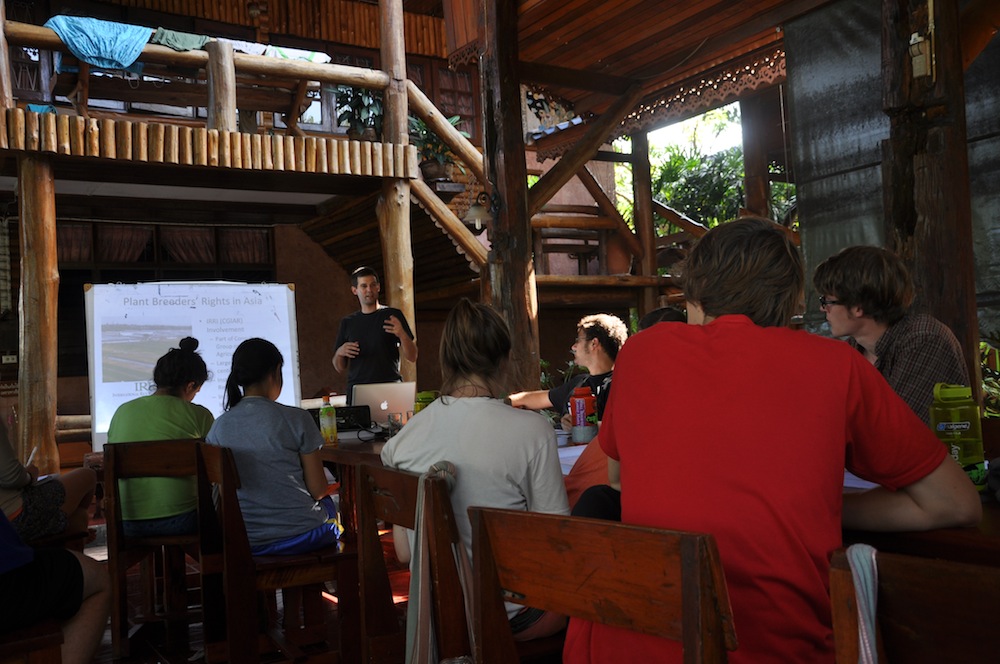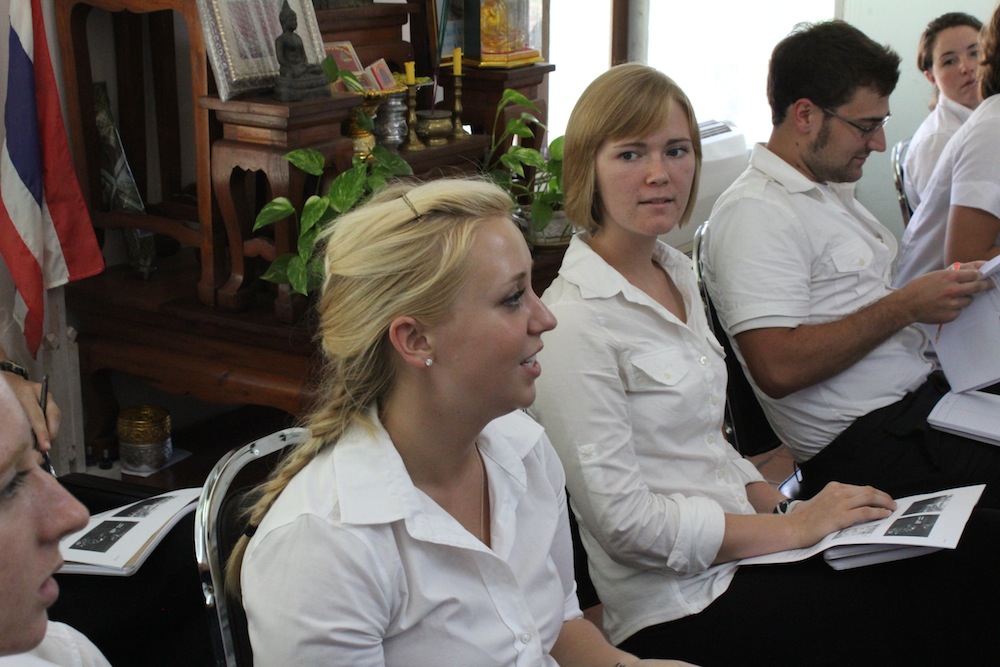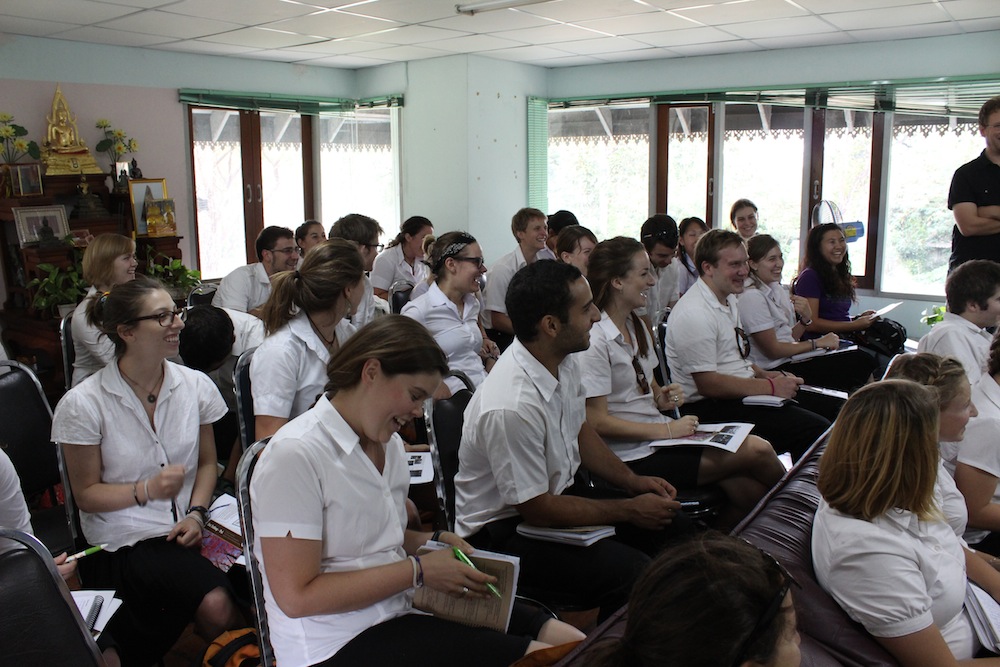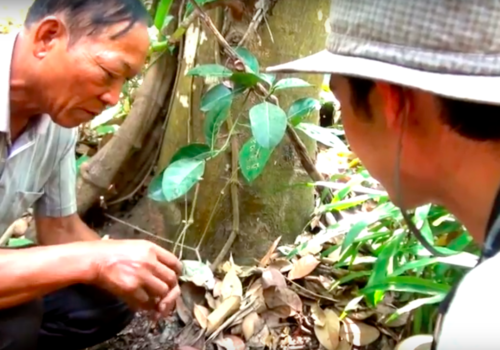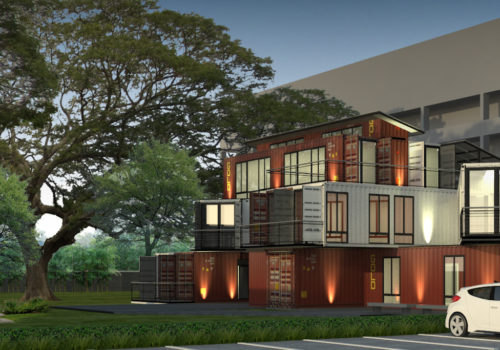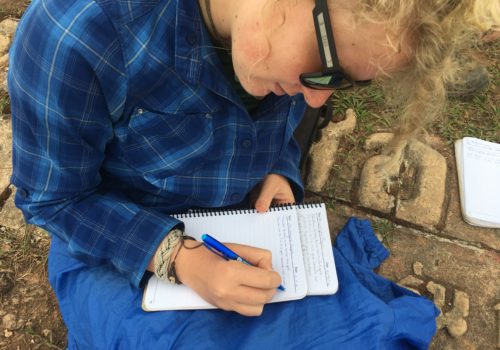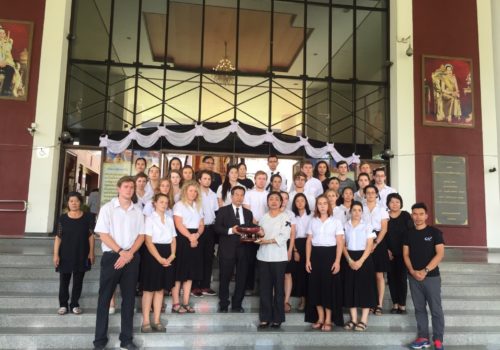Students just returned from three weeks in the mountains of Mae Hong Son province studying Political Ecology of Forests.
As the semester continues, students are learning just how varied their classroom settings can be.
Following a week of seminar classes in a formal classroom setting, students could find themselves in a wide range of settings for the remainder of the course.
Although “classrooms” in the field often take the form of host families, sustainable construction projects, watershed hikes, and community meetings, there are times that we also turn an available space into a classroom for the day. During their Sustainable Food Systems mid-course seminar last month, we made use of an open air space to accommodate the activities, lectures, and video included in the seminar. During the Forests mid-course seminar, however, students found themselves in a very different setting, atop the highest point in Mae Hong Son, Doi Pui (photos of Forests mid-course coming soon). We allow the setting to determine the classroom rather than having the classroom determining the setting.
Another aspect of ISDSI courses is the ability to encompass all types of learning. The traditional classroom settings of seminar week are well-suited to students accustomed to an auditory learning style. Learning in the field, on the other hand, often forces students to learn visually and kinesthetically by observing and participating in hands-on activities. Projects in seminar and out in the field require students to lead discussions, create visual representations, write papers, meet with local community leaders and members, become an active part of their host families, develop technical skills, and consistently practice communicating in Thai. All of these things make for a rigorous and comprehensive program that allows students to develop a deep understanding for the topics they are studying.
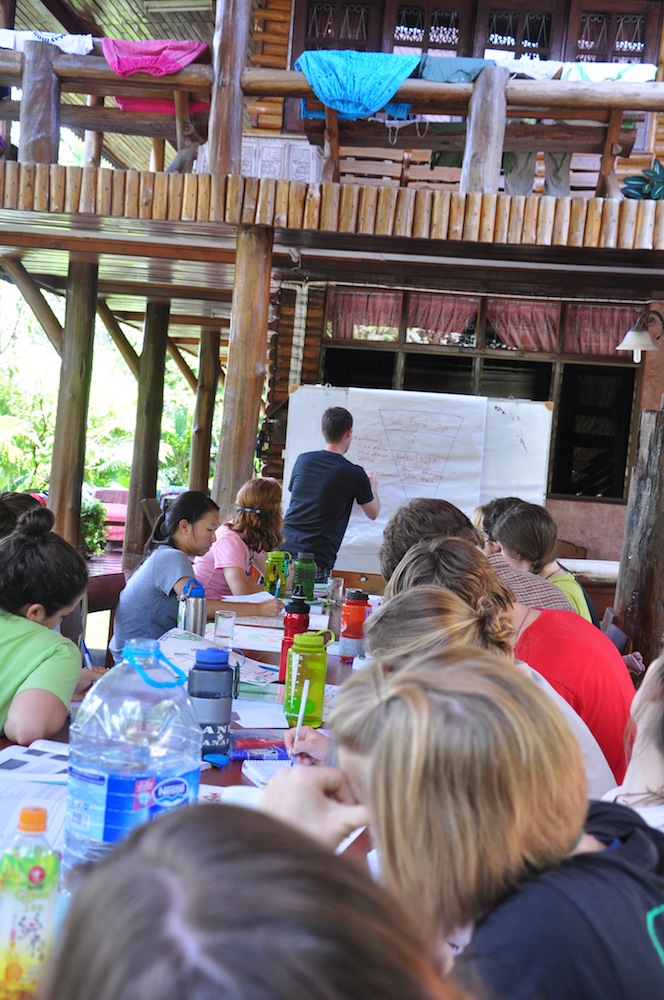
Ajaan Abram lectures on the main themes of the course during the Sustainable Food Systems mid-course seminar.
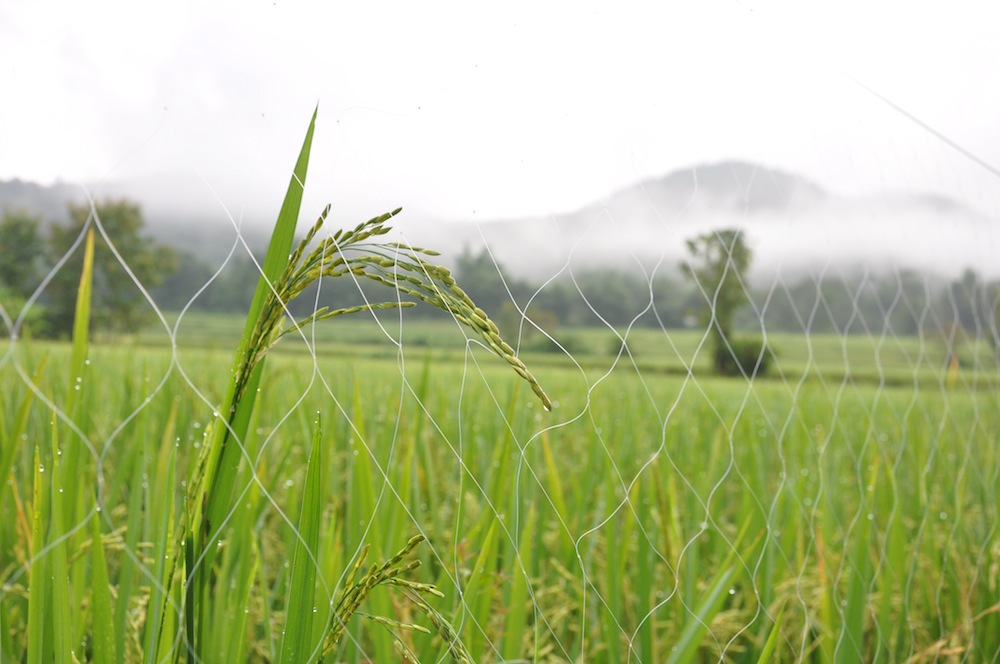
After finishing with their mid-course seminar, students traveled to Maeta, where they spent time learning about organic rice farming in paddies such as this one.
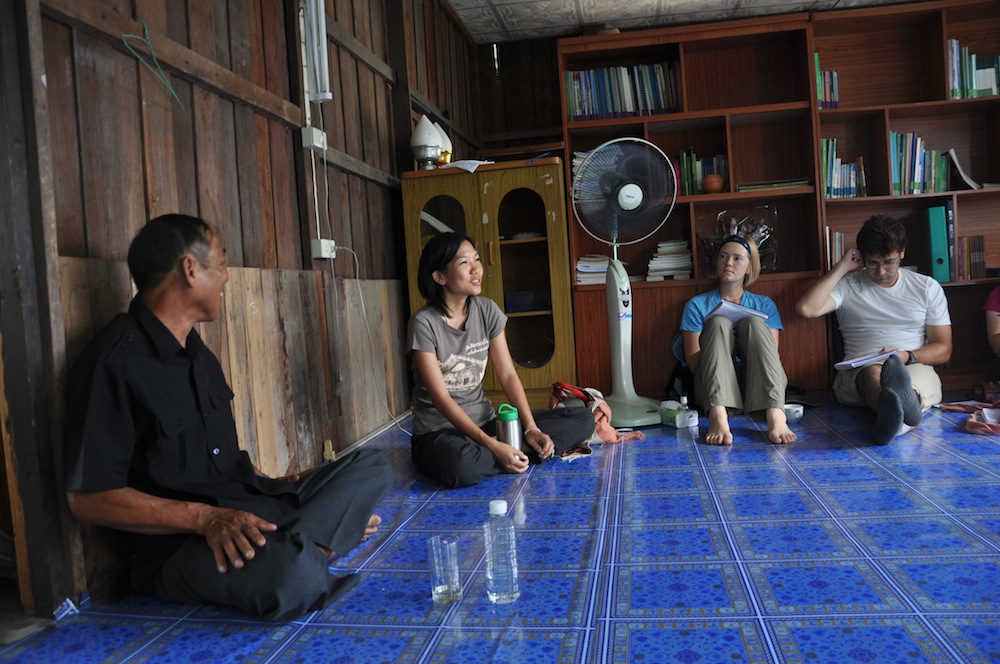
Students participated in a community meeting with Pa Pat, a community leader in Maeta, with Pi Ming assisting with translation.
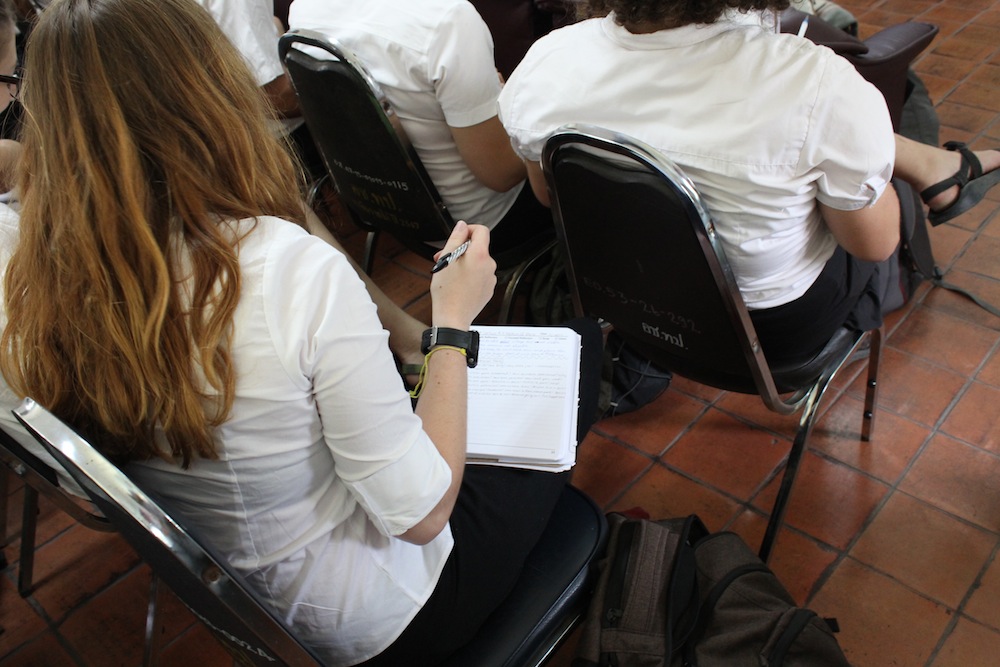
Before heading out to the field for their Forests course, students took a trip to the nearby Doi Suthep National Park office for a meeting with park officials about policies regarding groups living within national park boundaries.
